Most cats hate the smell of citrus and are unlikely to nibble on your orange. However, as a pet parent, it’s still important to understand whether this fruit is safe for your kitty. After all, you never know when orange might be an ingredient in a food item or when a curious cat might decide to take a taste.
So, can cats eat oranges? We spoke to three veterinarians to learn if cats can safely eat this sweet, tangy fruit.
Can Cats Eat Oranges?
No, cats should not eat oranges. This includes all types of oranges, such as navel, mandarin, and cara cara oranges. Jenna Whatley, DVM, Director of Ecosystems at Thrive Pet Healthcare, explains that oranges, like other citrus fruits, contain compounds that can be harmful to cats, including:
- Essential oils, namely limonene and linalool: These are mostly found in the peel and can cause digestive upset and reduced central nervous system response.
- Psoralens: Found in the peel, seeds, flesh, leaves, and stems, these compounds can cause extreme sensitivity to sun, which may result in redness, irritation, or burning if your kitty spends time outside.
- Citric acid: Mostly found in the peel and flesh, this substance can irritate a cat’s gastrointestinal system.
Eliza O’Callaghan, DVM, managing veterinarian at Small Door Vet in New York, notes that the orange peel and seeds have higher concentrations of these harmful substances than the flesh, making them the greatest risk to cats.
The good news? O’Callaghan says pet parents generally don’t need to worry about their cats eating oranges. Cats are naturally repelled by the smell of citrus. This makes it unlikely they would go near an orange, let alone consume enough to cause serious harm.
Nutritional Content of Oranges
Oranges provide several benefits to humans. They’re rich in vitamin C and potassium, provide dietary fiber for better digestion, and contain natural sugars that provide energy. However, cats don’t reap the same advantages from this fruit.
“Cats don’t need to consume foods containing vitamin C because their bodies can synthesize it on their own,” O’Callaghan says. In fact, Whatley adds that providing supplements or foods high in vitamin C can lead to urinary issues, such as calcium oxalate stones.
Similarly, Rhiannon Koehler, DVM, MPH, a veterinary expert at TeachMe.To and contributing writer for The Spruce Pets, explains that the dietary fiber that supports human digestion provides little benefit to cats, as their carnivorous digestive systems aren’t built to process plant-based fibers effectively.
As for the natural sugars in oranges, they are neither suitable nor nutritionally necessary for cats. Whatley says consuming too much sugar can cause your cat's blood sugar to spike, which is particularly dangerous for cats with pre-diabetes or diabetes.
As obligate carnivores, cats thrive on diets centered around high-quality animal proteins—not fruit. This means there are no benefits to offering your cat oranges—only potential risks.
Risks of Feeding Oranges to Cats
According to the doctors O'Callaghan, Koehler, and Whatley, if your cat ingests part of an orange, you might notice the following symptoms:
- Drooling
- Vomiting
- Diarrhea
- Depression
- Lethargy
- Dermatitis
O’Callaghan says these effects are typically short-lived and mild, but in rare cases, ingestion or contact with the peel or seeds could lead to more pronounced effects.
If your cat shows persistent symptoms or unusual behavior, contact your veterinarian as soon as possible or take your cat to an emergency pet clinic.
Safe Alternatives to Oranges for Cats
While oranges are unsafe for cats, there are other fruits that are safe to offer as occasional treats. However, these should only be given in small portions, as fruits aren’t a necessary part of a cat’s diet, and excessive amounts can lead to health problems. To maintain a balanced diet, treats—including fruits—should make up no more than 10% of a cat’s overall food intake.
Before giving your cat fruit, be sure to remove seeds, pits, and peels, as these can pose choking hazards or contain substances that may harm your cat.
Cat-safe fruits include:
- Strawberries
- Apples
- Cantaloupe
- Bananas
- Watermelon
- Blueberries
- Apples
- Cranberries
- Blackberries
- Mango
- Raspberry
The Bottom Line on Cats and Oranges
Oranges, while nutritious for humans, are not safe for cats due to their toxic compounds and unsuitability for a feline diet. As obligate carnivores, cats require a diet based on animal-based proteins, with no need for fruits like oranges.
- Can cats eat any part of an orange, like the peel or seeds?
No, all parts of an orange—including the peel, seeds, flesh, and other plant materials—are harmful to cats. However, the peel and seeds contain the highest concentration of toxic compounds.
How much orange would a cat need to eat to cause problems?If your cat takes a couple bites of orange flesh, Dr. Koehler says they’re unlikely to show symptoms. However, consuming a larger quantity of the peel or seeds could be more concerning.
What should I do if my cat eats orange?If your cat ingests any part of an orange, monitor them closely for symptoms like vomiting, diarrhea, drooling, or lethargy. If symptoms appear, contact your vet immediately. You can also contact the Pet Poison Helpline (855-784-7661) or ASPCA Animal Poison Control Center (888-426-4435), which are available 24/7.

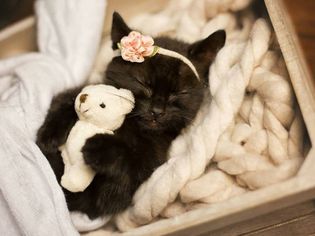
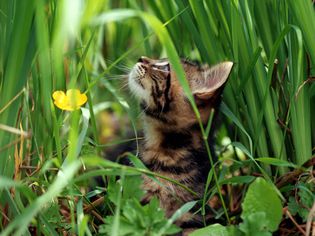
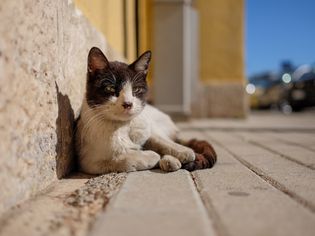
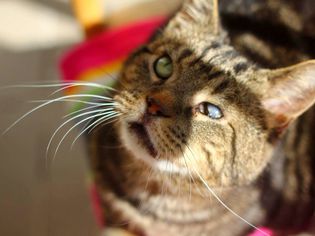

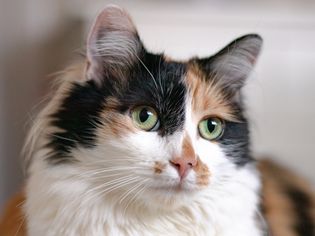
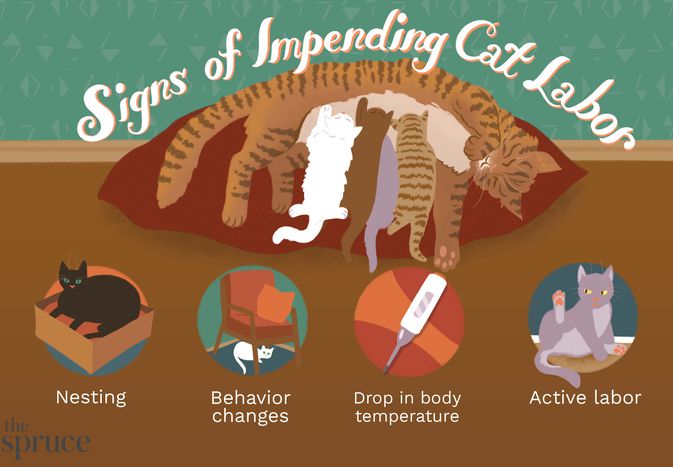

Comments on "Are Oranges Dangerous for Cats? What the Experts Say" :